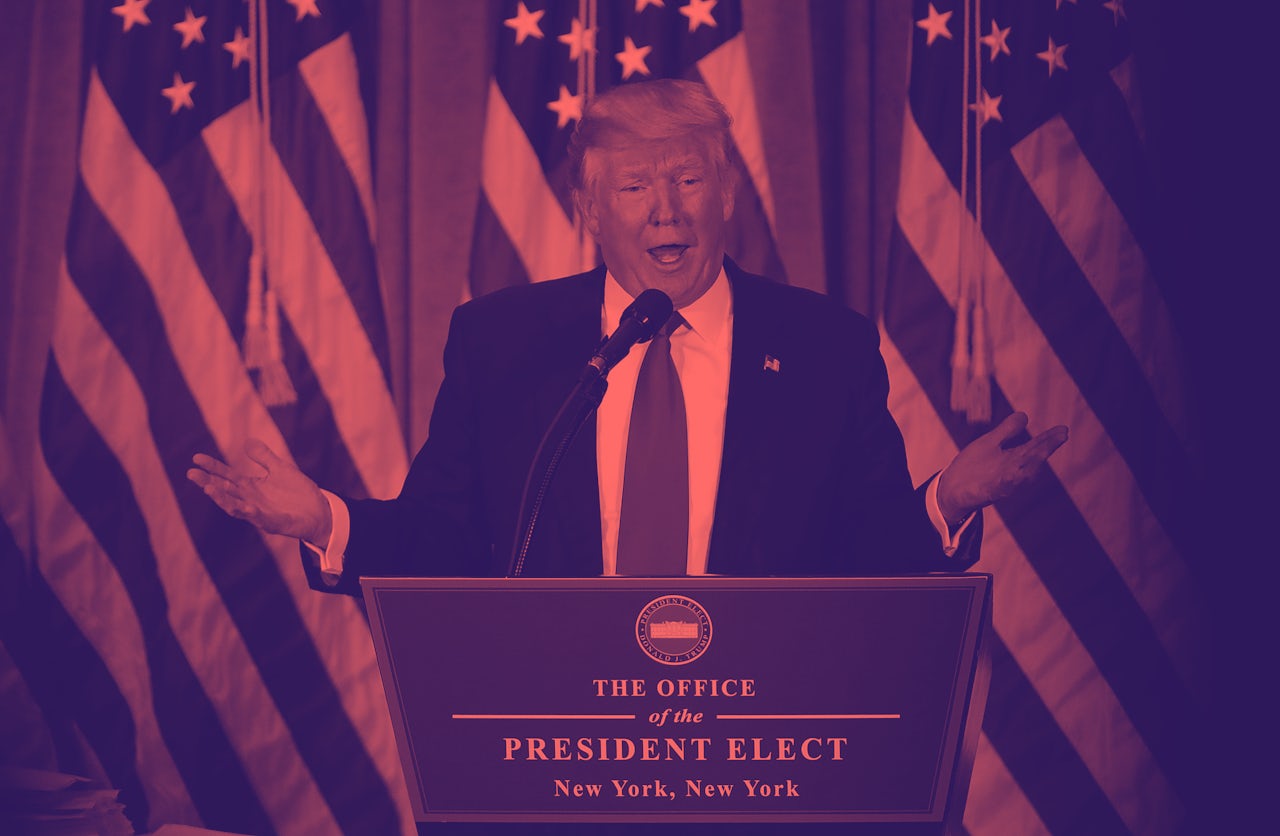BuzzFeed last night published a trove of unverified intelligence documents alleging that Donald Trump has secret shady ties to Russia and maybe paid prostitutes to pee on each other while he watched. In turn the media exploded with bad pee jokes and questions about ethics, so a day not too different from other days.
To me there is no question whether BuzzFeed should have published the documents; if it was known, as has been claimed, that Sen. John McCain had received the documents and passed them to the FBI, that is enough to clear the public interest burden. (I do, however, quibble with the oily way BuzzFeed presented the documents — as if it were doing its readers an incredible public service. No. It was about to get scooped.)
But we’re now in a weird netherworld where, it seems, no one except John McCain takes responsibility for anything but everyone wants credit for either presenting or not presenting information. As I wrote last week, the media needs to verify and then trust what it is reporting to the public; BuzzFeed did not do that here (as editor Ben Smith wrote in a memo to his staff about the document release, "As we noted in our story, there is serious reason to doubt the allegations." Cool... thanks). Presenting a dump of incendiary documents without context relating to our volatile political situation and then throwing your hands up and saying, "Maybe they’re true, maybe not, make up your own mind, millions of people!" is not exactly shimmering journalism — it’s the WikiLeaks model of how information should be disseminated, which can get very dark, very fast.
Transparency is great, but it comes with a lot of risk. It is typically ugly. Curiously, Glenn Greenwald, a staunch transparency advocate, appeared angry at BuzzFeed’s decision to leak the document. “Demanding that evidence-free, anonymous assertions be instantly venerated as Truth — despite emanating from the very precincts designed to propagandize and lie — is an assault on journalism, democracy, and basic human rationality,” he wrote. Hmm. Is this not the same argument that was lobbed at the Greenwald-endorsed WikiLeaks by traditional media when it exploded onto the scene in 2010?
Transparency is great, but it comes with a lot of risk. It is typically ugly.
Of course, at that time, WikiLeaks had partnered with news organizations, who did most of the difficult verification and reporting work for it. And Greenwald is openly and firmly anti-CIA, so it makes sense that he would not like the Trump report and the way Democrats are dancing in the light of its revelation. But is Julian Assange an honest, trustworthy man? Why should anyone take seriously a self-aggrandizing, mercurial, egotistical alleged rapist whose processes are cloaked in shadow? WikiLeaks has provided the public with important information, but it’s also disseminated a lot of bullshit. And without support from traditional news organizations, what it does is not too different than what BuzzFeed did yesterday. Assange calls this “scientific journalism”: “We work with other media outlets to bring people the news, but also to prove it is true. Scientific journalism allows you to read a news story, then to click online to see the original document it is based on. That way you can judge for yourself: Is the story true? Did the journalist report it accurately?” Sounds familiar.
Like the most essential conflicts of human nature, this latest course in media ethics can be traced back to hurt feelings and a desire for popularity and power. Traditional media hates Assange. Glenn Greenwald hates traditional media. BuzzFeed wants clicks. With so much internecine dick-measuring, the fight for capital-T truth is more elusive than ever. But what is that Truth, who gets to decide it, and at what cost? I would not want The Atlantic’s David Graham, who wrote a strangely pro-Trump critique of BuzzFeed’s decision to publish the document, to be my messenger of truth. (Sample line: The document dump “unfairly forces a public figure — Trump, in this case — to respond to a set of allegations that might or might not be entirely scurrilous.” Isn’t that the entire point of journalism? Did Trump ghostwrite this piece? Is David Graham actually a Kushner?)
Our “truths” tend to align with, and justify, our prejudices. This is not a bad thing, but it complicates the search for facts, of which we are in serious need. The kind of media clusterfuck that we’re currently enmeshed in is what can lead to a disengaged populace (just look at how many people didn't vote in the last election). Why pay attention when there is no clear indication of what is going on? I get it. On days like today I read the news and wish that someone could just tell me what was happening. The job of the citizen is to pay attention and use their critical thinking faculties to form opinions, but that can't happen with a schizophrenic media that doesn't do its own job: taking difficult-to-understand information and putting it in readable form for the public. "We report, you decide" still has to include... reporting.
